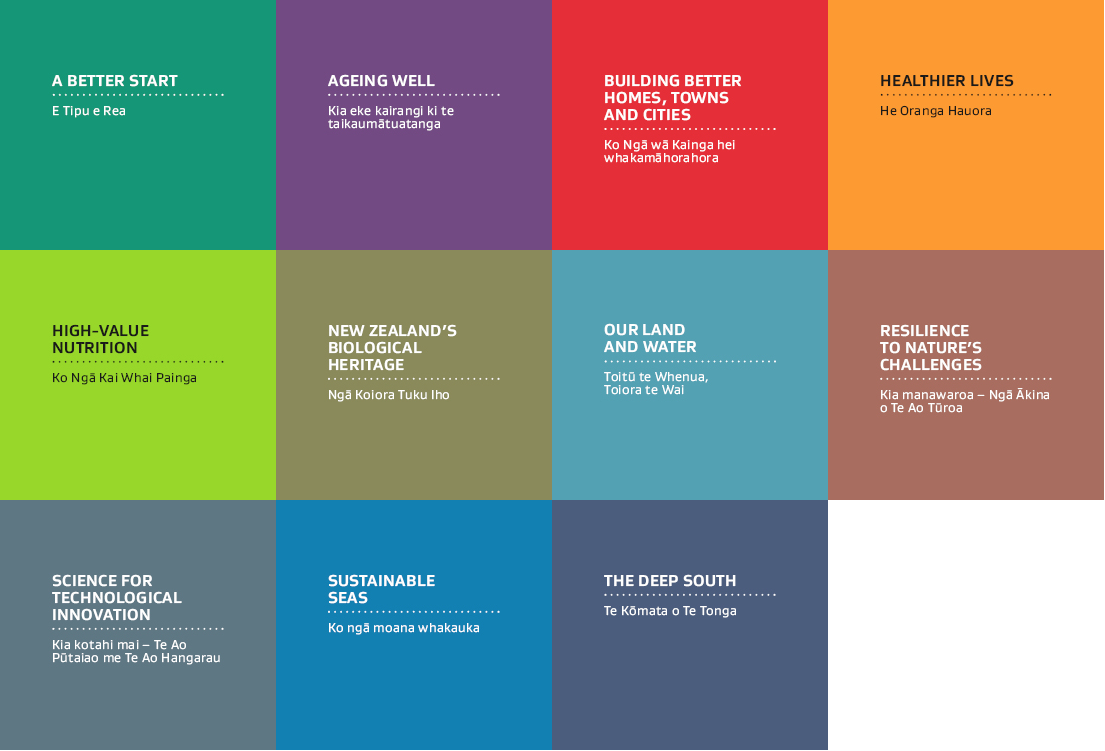The National Science Challenges have been through their mid-way reviews, with Minister Megan Woods announcing on Saturday that all have been given their second tranche of funding.
Launched in 2014 to allow researchers across institutes to collaborate on issues relevant to New Zealanders, the 11 Challenges were initially allocated ten years of funding over two five-year periods.
The funding released by Minister Woods on Saturday was all accounted for in the intial plans for the National Science Challenges, but it is not equally split among them. For a few of the challenges, the second tranche is substantially larger, so it’s expected those Challenges will ramp up substantially during the next period.
The Challenges responded to the successful funding round:
Ageing Well
Biological Heritage
Building Better Homes, Towns and Cities
The Deep South
Healthier Lives
Resilience to Nature’s Challenges
Sustainable Seas
Science for Technological Innovation
The SMC asked New Zealand experts to comment on the announcement.
Dr Heide Friedrich, President, New Zealand Association of Scientists, comments:
“The New Zealand Association of Scientists is very supportive of increased science funding as we lag OECD averages on spending on R&D.
“The New Zealand Association of Scientists has concerns if the review process asked the right questions, given the recommendation is to approve the second tranche of funding without changes.
“Adjustments or indeed more substantial changes to the detailed distribution of funding should have been expected, taking into account what we have learned over the last five years.
“As is, there is the potential to favour particular groups that were locked-in in the early stages, when the process was not well-understood. Funding seems to be spread very thinly, so that many researchers appear involved but only with small amounts of funding.
“The New Zealand Association of Scientists also has concerns about the cost of governance – could we have achieved more with the funding through existing funding pathways? One of the prime drivers of the Challenges was to go ‘Beyond Business as Usual’. Does the review assess if the Challenges funding model did better than ‘Business as Usual’?
“We also remain curious as to why the Challenges have struggled to spend their initial tranche of funding.”
No conflict of interest.
Professor Shaun Hendy, Director, Te Pūnaha Matatini, University of Auckland, comments:
“After some public input, the National Science Challenges were more or less selected by a panel led by Sir Peter Gluckman but most of us still find this process rather mysterious.
“At the time I was very disappointed that the Challenges didn’t really include anything that would capture the public imagination. Five years on, I think we have seen some great wins from the Challenges, but I am surprised we’ve seen all of them refunded to the tune of their original fiscal envelopes.
“They have put extraordinary levels of stress on the science system, and there has been a lot of discussion about the dollars and sweat that goes into their governance and management. I think there was scope for reducing this by amalgamating some of them. The health-focused Challenges, for example, are not much bigger each than an Endeavour programme and might have benefited from amalgamated management and governance. This might also have helped to give them more profile with the public.
“Furthermore, as a follow up to the mid-term reviews, I would like to see some public data on who is being funded and for what. Right now its very hard to tell whether the Challenges are engaging well with emerging or Māori researchers, for example, or whether funding is going to an old boys’ network. I would like to see a robust audit of the way the Challenges were selected, procured, and established so we can learn how this might be done better in the future. The science community would benefit from knowing what worked and what didn’t, and given that the public were involved in their selection, they also deserve some insight into this.”
Conflict of interest statement: I am on the Board of Callaghan Innovation, which hosts the Science for Technological Innovation Challenge. My views do not represent those of Callaghan Innovation.
Associate Professor Nicola Gaston, Co-Director, The MacDiarmid Institute for Advanced Materials and Nanotechnology, and The University of Auckland comments:
“It is good to see the announcement of continued funding of the National Science Challenges, along the lines of the original ten-year plan. While there was a lot of community criticism of the challenges at the start, that was mostly around issues of opportunity cost (whether the areas selected were the right ones) and system complexity (whether the reallocation of funding, in particular from Crown Research Institutes to the NSCs, was efficient or whether it just created an additional layer of costly administrative overhead in the research sector). It now seems clear that, while each of the Challenges has operated a little differently, for the most part the research community has done its best to mitigate these initial issues through consultation and collaboration.
“One of the biggest concerns around the National Science Challenges was the original indication that they would provide a de facto science strategy for New Zealand, which is what made the question of opportunity cost particularly worrisome. The development of the National Statement of Science Investment has gone some way to removing those concerns around capture of funds, as it has made somewhat clearer the relationship between different parts of the science ecosystem, and I would even say that the most successful NSCs may be those that have learned to cooperate most effectively with other research organisations — CRIs, CoREs, or Independent Research Organisations.
“However the balance between complexity and efficiency of our research system is a delicate one that does need monitoring — for now I would say that the stability provided by this continued funding is absolutely what the sector needs.”
I have no conflict of interest with or connection to any of the NSCs
